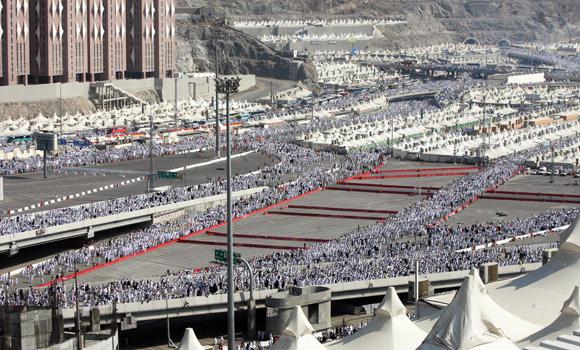
Jeddah, Sep 15: In a major initiative to prevent floods and loss of life during Haj, a Saudi Geological Survey (SGS) team has urged the authorities to ensure all rainwater drainage systems are in good working order and not blocked by pilgrims and Haj operators in Mina.
The team presented an action plan on flood safety recently to Makkah Gov. Prince Khaled Al-Faisal, who is also chairman of the Central Haj Committee.
The SGS said a downpour in Mina could send water from the surrounding mountains into the valley causing flash floods that could threaten the safety of millions of pilgrims, who spend four to five days in the valley during the peak days of Haj.
The SGS asked the Ministry of Haj not to allow Tawafa organizations and Haj service companies to obstruct storm water drains and canals in Mina.
A ministry official, meanwhile, said it had informed all Haj service providers that they should not do anything that might obstruct the flow of water in the valley. “Anyone who tampers with the rainwater drainage networks will be punished,” the official said.
The emergency plan for Haj approved by the Ministry of Interior clearly marks all the locations and plots at the holy sites vulnerable to flash floods.
In November 2009, an unprecedented downpour wreaked havoc in Jeddah killing more than 100 people. Civil Defense teams have taken precautions to deal with floods during Haj, including keeping ready rubber boats and diving teams.
Osama Felali, chairman of the National Haj and Umrah Committee, said the tent space allocated for VIP pilgrims at the holy sites has been reduced considerably, amounting to just over 1 percent of the total space.





Comments
Add new comment